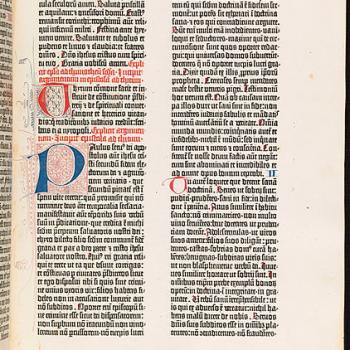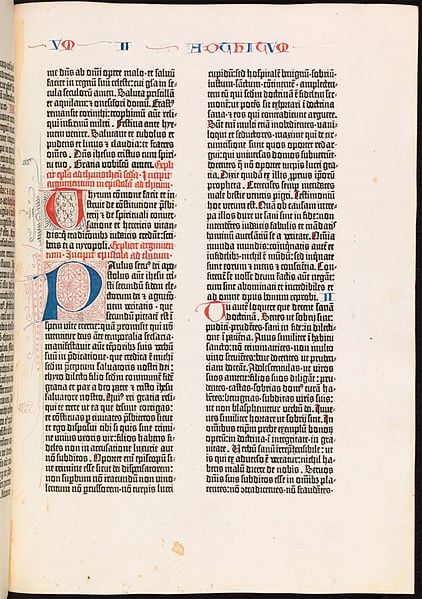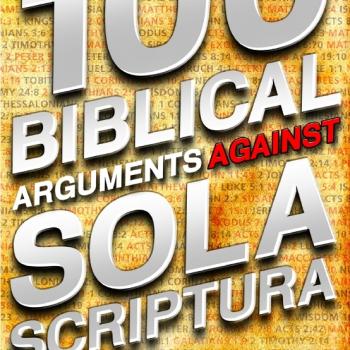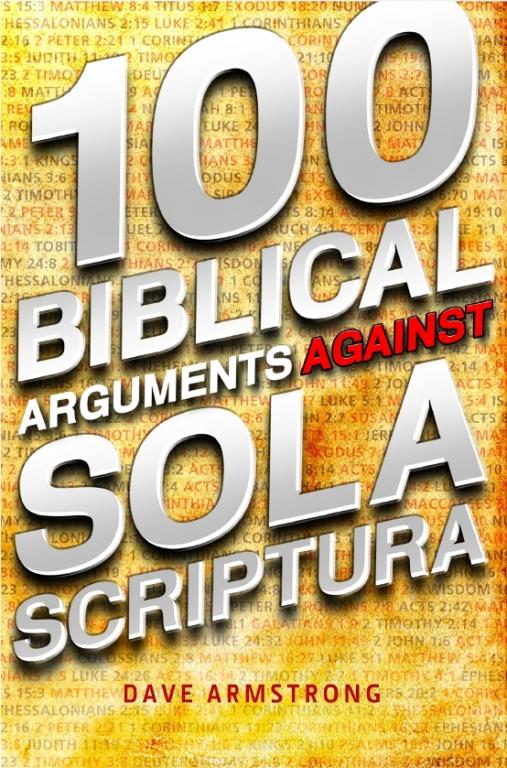Debate with Five Atheists. Are Christian Women Abused as “Sheep”?

This is an exchange I had on a semi-private discussion list (starting on 31 August 2010), connected with an atheist group that I was invited to (I’ve attended in-person, twice) and one I have been interacting with in writing. A thread began, where negative comments were made about the Bible and Christian women. I chimed in, and of course it was off to the dog races, then. Very little actual dialogue occurred, and I vociferously complain about that later in the dialogue. But assuredly there is a lot of substance and food for thought.
I don’t name any names, provide no link to the original thread, and have asked permission to post this, stating that if anyone didn’t want their words to be part of this, to just say so and that I would be glad to comply. But this amazing exchange is not to be missed.
Color Code:
Woman #1: words in orange
Woman #2: red
Woman #3: blue
Man #1 (head of the group): green
Man #2: purple
Me: black
* * * * *
Women are always second class citizens in the bible.
Really? Funny, I hadn’t noticed that after 33 years of intense Bible study. The Bible I read has Paul stating that there is no male or female in Christ. Husbands are to honor their wives and love them like Christ loved the Church (i.e., He died for us). The Bible I read shows women with great courage, being at the crucifixion, while all the male disciples except for John, were a bunch of wimps and cowards, and fled in terror (Peter having denied that he even knew Christ). Mary Magdalene was the first to see the risen Christ, and several women were in the forefront of that event, too, while the men were slow to believe. Jesus saved a woman from being stoned for adultery, on the grounds that her sin was not — in the final analysis — greater than anyone else’s. Even Rahab the harlot is honored, because she helped the Israelite spies. Jesus greatly honored the woman who wiped His feet with her tears and rebuked his male host.
Mary the mother of Jesus is, in fact, the very highest of all God’s creatures: far higher than any man. We Catholics believe she is sinless and immaculate (preserved from original sin from the moment of her conception; Martin Luther, the founder of Protestantism, actually believed the same thing, too). She is so exalted that Catholics are falsely accused of worshiping her all the time (we venerate her, which is essentially a high honor, but not worship). I am working on a book about Mary this very day. Catholics believe that God even channels the grace of salvation through Mary. Many other women are treated with great dignity and honor (e.g., Judith, Esther).
“Liberated” women have really come a long way recently, haven’t they? They learned to smoke like men, and started dying of lung cancer at the same rate that men died. Real liberation there. Now they have accepted men’s selfish lies about abortion and have learned to slaughter their own offspring before they can even get out of the womb, and call that outrage a “choice” and a “right.” Real progress there too.
The Bible, in elevating marriage to a lifelong commitment and a sacrament, protected women from much abuse. But now we have gone beyond all that. Now we are liberated and see women as sex objects and mere playthings that can be jettisoned if they are too old or undesirable. That is what our wonderful sexual revolution has brought us. Generally, it is women who suffer to a much greater extent economically after divorce (along with children). We know that; there is no question about it. It is the “puritanical” Christians who are in the forefront of the fight against pornography: the very thing that promotes these views. But the secular society thinks pornography is great: everyone has a right to indulge in it. Anyone who protests is a prude and opposed to “free speech.”
I’ll take the biblical and Christian view of women any day, thank you.
I have not studied religion to a great degree
Yeah, I can see that. Why, then, do you feel confident making uninformed statements about the supposed low biblical view of women? That is what I find quite odd and curious: the simultaneous admission of profound ignorance with, nevertheless, confident statements about what the Bible (that one has never studied much) teaches.
I used to be viewed as property of my husband’s…..can’t even imagine that.
That’s not what the Bible teaches. A lot of stupid, selfish men may have thought that, but it isn’t biblical teaching. You object to that (biblical) myth; why not also object to women regarding their own preborn children as their property, to dispose of as they wish? It’s gotten so absurd that the child is even thought to be part of the woman’s body, despite having separate DNA and (in the case of a male child) a penis. The father has no legal say at all in the life of his own child. And that is because in our mentality today, the mother “owns” the child as property: precisely as slavery functioned. The child has no rights whatever. It is even denied that he or she is a person. So the outrages and the genocide of our time are ignored, while we war against a mythical straw man “Christianity” of our own making.
You wanna go after the Bible and Christianity? There is plenty in our own secularized, “enlightened” time to critique also. But I have told the truth about that. I didn’t have to distort the facts. They are all around us: broken homes and broken women and children, and men (equally broken) reaping the dire consequences insofar as they reject traditional teachings on marriage, sexuality, and childrearing.
You wanna go down in inner-city Detroit (where I grew up) and see what the sexual revolution and the “Great Society” has done to families down there? Is that to be blamed on Christianity, too: that illegitimacy is now 75% or so and single-parent families are the overwhelming norm? We’re the ones who promoted marriage and waiting to have sex till marriage. Society wanted to reject that; so check out what is going on in the cities now to see how well secular ideas and the rejection of traditional religious morality have worked out. That’s the cutting edge.
Religion and holy books were created by MEN to control various sections of the population including women. It’s very amusing to see religious women act like sheep even in this day and age. Here are some priceless Bible quotes regarding women:
“And the daughter of any priest, if she profane herself by playing the whore, she profaneth her father: she shall be burnt with fire.” (Leviticus 21:9)
“When men strive together one with another, and the wife of the one draweth near for to deliver her husband out of the hand of him that smiteth him, and putteth forth her hand, and taketh him by the secrets: then thou shalt cut off her hand, thine eye shall not pity her.” (Deuteronomy 25:11-12)
“Speak unto the children of Israel, saying, If a woman have conceived seed, and born a man child: then she shall be unclean seven days; according to the days of the separation for her infirmity shall she be unclean.” (Leviticus 12:2)
“But if she bear a maid child, then she shall be unclean two weeks, as in her separation: and she shall continue in the blood of her purifying threescore and six days.” (Leviticus 12:5)
“But I would have you know, that the head of every man is Christ; and the head of the woman is the man; and the head of Christ is God.” (I Corinthians 11:3)
“For the man is not of the woman; but the woman of the man. Neither was the man created for the woman; but the woman for the man.” (I Corinthians 11:8-9)
“Behold, I will cast her into a bed, and them that commit adultery with her into great tribulation, except they repent of their deeds. And I will kill her children with death; and all the churches shall know that I am he which searcheth the reins and hearts: and I will give unto every one of you according to your works.” (Revelation 2:22-23)
“Thou shalt not suffer a witch to live. Whoever lieth with a beast shall surely be put to death. He that sacrificeth unto any god, save to the LORD only, he shall be utterly destroyed.” (Exodus 22:18-20)
“Behold, here is my daughter a maiden, and his concubine; them I will bring out now, and humble ye them, and do with them what seemeth good unto you: but unto this man do not so vile a thing. But the men would not hearken to him: so the man took his concubine, and brought her forth unto them; and they knew her, and abused her all the night until the morning: and when the day began to spring, they let her go.” (Judges 19:24-25)
“Let the women learn in silence with all subjection. But I suffer not a woman to teach, nor to usurp authority over the man, but to be in silence. For Adam was first formed, then Eve. And Adam was not deceived, but the woman being deceived was in the transgression.” (I Timothy 2:11-14)
“If a man be found lying with a woman married to an husband, and a man find her in the city, and lie with her;” (Deuteronomy 22:22)
“Then ye shall bring them both out unto the gate of that city, and ye shall stone them with stones that they die; the damsel, because she cried not, being in the city; and the man, because he hath humbled his neighbour’s wife: so thou shalt put away evil from among you.” (Deuteronomy 22:24)
“Therefore the LORD himself shall give you a sign: Behold, a virgin shall conceive, and bear a son, and shall call his name Immanuel.” (Isaiah 7:14)
“If a man find a damsel that is a virgin, which is not betrothed, and lay hold on her, and lie with her, and they be found; Then the man that lay with her shall give unto the damsel’s father fifty shekels of silvers, and she shall be his wife; because he hath humbled her, he may not put her away all his days.” (Deuteronomy 22:28-29)
“Wives, submit yourselves unto your own husbands, as unto the Lord. For the husband is the head of the wife, even as Christ is the head of the church: and he is the saviour of the body. Therefore as the church is subject unto Christ, so let the wives be to their own husbands in everything.” (Ephesians 5:22-24)
“Let your women keep silence in the churches: for it is not permitted unto them to speak; but they are commanded to be under obedience, as also saith the law. And if they will learn any thing, let them ask their husbands at home: for it is a shame for women to speak in the church.” (I Corinthians 14:34-35)
“Unto the woman he said, I will greatly multiply thy sorrow and thy conception; in sorrow thou shalt bring forth children; and thy desire shall be to thy husband, and he shall rule over thee.” (Genesis 3:16)
“Samaria shall become desolate; for she hath rebelled against her God: they shall fall by the sword: their infants shall be dashed in pieces, and their women with child shall be ripped up.” (Hosea 13:16)
“Give me any plague, but the plague of the heart: and any wickedness, but the wickedness of a woman.” (Eccles. 25:13)
“Of the woman came the beginning of sin, and through her we all die.” (Eccles. 25:22)
“If she go not as thou wouldest have her, cut her off from thy flesh, and give her a bill of divorce, and let her go.” (Eccles. 25: 26)
“The whoredom of a woman may be known in her haughty looks and eyelids. If thy daughter be shameless, keep her in straitly, lest she abuse herself through overmuch liberty.” (Eccles. 26:9-10)
“A silent and loving woman is a gift of the Lord: and there is nothing so much worth as a mind well instructed. A shamefaced and faithful woman is a double grace, and her continent mind cannot be valued.” (Eccles. 26:14-15)
“A shameless woman shall be counted as a dog; but she that is shamefaced will fear the Lord.” (Eccles.26:25)
“For from garments cometh a moth, and from women wickedness. Better is the churlishness of a man than a courteous woman, a woman, I say, which bringeth shame and reproach.” (Eccles. 42:13-14)
* * *
Thank god/allah/buddha for the fearless women that went before me!!!!
And, of course, the early feminists, like Elizabeth Cady Stanton and Susan B. Anthony (just like most of the abolitionists), were Christians of some sort, and pro-lifers also. Ironically, though, Stanton, while campaigning for woman’s suffrage, early on wanted to oppose black men having the right to vote. Everyone has their blind spots . . . But Stanton made the same general analogy to abortion that I made above:
When we consider that women are treated as property, it is degrading to women that we should treat our children as property to be disposed of as we see fit.
(Letter to Julia Ward Howe, October 16, 1873, recorded in Howe’s diary at Harvard University Library)
Susan B. Anthony referred to abortion as “child murder.”
Well, Dave it is your lucky day! I am one of the few atheists out there that are going to agree with you on the Pro-life issue, although for a slightly different set of reasons. Abortion is not a matter of “choice” and it is indeed child murder and the worst form of violence a human can commit . A woman has choice in weather or not she has unprotected sex and if she makes a ‘choice’ at that point she should be ready for the consequences such as pregnancy.
The arguments such as ‘it is not life unless it can survive on its own’ do not make any logical sense because fetuses can not protect themselves especially from their own mothers. And abortion is against evolution/nature. You don’t eat/kill your own and still expect your genes to survive and flourish.
I am not talking about the extreme cases of mother’s life in danger, rape and incest type of situations but the more general use of abortion that liberals intend to use it for…….. as a method of contraception. One thing that puzzles me the most is why and how this issue became a Left or Right and heavily politicized aspect of American life.
Bravo, [name]. That was a magnificent statement about abortion. I remember you and [name; group leader] saying you were pro-life, and I was delighted to hear it.
Generally, when I argue against abortion, I don’t quote the Bible, and use reasoning much as you have done. In fact, I actually did that in a courtroom once when I and many others were on trial for blocking abortion clinic doors. In my little speech I appealed to ancient pagan Greek ethics and Hippocrates (the father of medicine) and said that the debate goes far beyond religion and Christian views.
I spent one night in a nice jail . . . . we were sentenced to a week, but they let me out in the morning. That was my entire punishment for five arrests and about 25 times breaking the law in civil disobedience.
To take one example from the laundry list (and unfortunately I have to get back to my regular work at the moment):
“Of the woman came the beginning of sin, and through her we all die.” (Eccles. 25:22)
But whoever came up with this chart forgot to include these passages also:
Romans 5:14 Yet death reigned from Adam to Moses, even over those whose sins were not like the transgression of Adam, who was a type of the one who was to come.
1 Corinthians 15:21-22 For as by a man came death, by a man has come also the resurrection of the dead. [22] For as in Adam all die, so also in Christ shall all be made alive.
And we Catholics believe that Mary was the means for the incarnation to be possible, which made salvation possible, and that God channels the grace of salvation through her. If that is “anti-woman” then let me proudly be part of that thinking!
At some point when I have time I’d love to explore the other passages and comment on them. It takes a ton of work and labor to interpret things properly in context and in light of overall biblical teaching (which also develops over time as well). It’s a lot like the alleged biblical contradictions thing. A million passages are thrown out: copied from some atheist (or otherwise skeptical) source. It takes ten times more labor and time to refute them (and to no avail anyway; the atheist generally disdains any such effort and simply moves on to other arguments). But I’ve done it in the past and will do so again. Only so many hours in a day . . .
Many turn out like the “prooftext” above did. By selectively citing the passage above about Eve and neglecting cross-references about Adam, a distorted picture is given. I knew this immediately, because I know the Bible, and I know this was not the whole picture.
And by the way, the very reference was incorrect. It is Ecclesiasticus (or Sirach) 25:24, not 25:22. The same book (typical of Jewish proverbial literature) also praises “the good wife” starting three verses later (26:1-4, 13-16).
Just one more before I go (couldn’t resist):
“And the daughter of any priest, if she profane herself by playing the whore, she profaneth her father: she shall be burnt with fire.” (Leviticus 21:9)
Nice try. Of course, men get burnt, too. Here are examples:
Leviticus 20:14 If a man takes a wife and her mother also, it is wickedness; they shall be burned with fire, both he and they, that there may be no wickedness among you. [this one occurred just 22 verses earlier than the one above, but damn the context . . . ]
Joshua 7:15, 24-25 And he who is taken with the devoted things shall be burned with fire, he and all that he has, because he has transgressed the covenant of the LORD, and because he has done a shameful thing in Israel. . . . And Joshua and all Israel with him took Achan the son of Zerah, and the silver and the mantle and the bar of gold, and his sons and daughters, and his oxen and asses and sheep, and his tent, and all that he had; and they brought them up to the Valley of Achor. [25] And Joshua said, “Why did you bring trouble on us? The LORD brings trouble on you today.” And all Israel stoned him with stones; they burned them with fire, and stoned them with stones.
Stoning was also an “equal opportunity” punishment.
The only burning females in “Christian” society today (with full consent of the law and the people) are the preborn female children (about one in two) who are scalded to death by saline abortions. But we would rather talk selectively about ancient punishments . . .
Getting back to some of the “shock-quotes” from the Bible:
“When men strive together one with another, and the wife of the one draweth near for to deliver her husband out of the hand of him that smiteth him, and putteth forth her hand, and taketh him by the secrets: then thou shalt cut off her hand, thine eye shall not pity her.” (Deuteronomy 25:11-12)
An odd passage to be sure. But the claim above (now made by three women) is that the Bible is anti-woman through and through. If that is so, then why is the law against adultery and fornication (when men commit it) so strict? If it was really about letting men do whatever they want and only punishing women for free sex (the old double standard) then why is there a Leviticus chapter 18 at all? It’s almost solely devoted to blasting men who want to have sex with everyone under the sun except their wives:
1) Mother (18:7-8).
2) Sister (18:9, 11).
3) Granddaughter (18:10).
4) Aunt (18:12-14).
5) Daughter-in-law (18:15).
6) Sister-in-law (18:16, 18: “rival wife to her sister”).
7) Any kinswoman and her daughter (18:17).
8) Kinswomen’s granddaughters (18:17).
9) Neighbor’s wife (18:20).
10) Male homosexual sex (18:22).
11) Bestiality (of a man or a woman: 18:23).
The punishment for any of these transgressions is stated in 18:29: “For whoever shall do any of these abominations, the persons that do them shall be cut off from among their people.”
“Speak unto the children of Israel, saying, If a woman have conceived seed, and born a man child: then she shall be unclean seven days; according to the days of the separation for her infirmity shall she be unclean.” (Leviticus 12:2)
“But if she bear a maid child, then she shall be unclean two weeks, as in her separation: and she shall continue in the blood of her purifying threescore and six days.” (Leviticus 12:5)
This was a matter of ritual cleanliness or purification, or the ceremonial law. Why was there a difference for the period of “uncleanness” with regard to bearing male and female children? One explanation is that the male children were circumcised on the eighth day (Gen 17:12): another matter of purification and the ritual of the law. The female children were not; therefore, the mother underwent purification longer than for the birth of a male child.
Purification does not directly or intrinsically have to do with sin. Jesus Himself underwent ritual purification when He went to the temple, and He was also baptized, even though He was without sin and had no need of it whatever. He did it because it was an accepted ritual according to Jewish Law. Mary did various ceremonies, too, even though we Catholics believe she never sinned, either and was preserved even from original sin.
“But I would have you know, that the head of every man is Christ; and the head of the woman is the man; and the head of Christ is God.” (I Corinthians 11:3)
Headship is not a matter of inequality but of differential roles. Jesus was subject to His father in a sense (“the head of Christ is God”: meaning God the Father, since Jesus is also presented as God in the NT), yet they were equal: both were God. He was even subject to Joseph and Mary as a child: yet they were creatures and He was God. There is no basis for inequality in this, let alone domination or subjugation. The entire teaching is a very beautiful thing:
Ephesians 5:25, 28-30 Husbands, love your wives, as Christ loved the church and gave himself up for her, . . . [28] Even so husbands should love their wives as their own bodies. He who loves his wife loves himself. [29] For no man ever hates his own flesh, but nourishes and cherishes it, as Christ does the church, [30] because we are members of his body.
A friend of mine has a cute saying with reference to men who are stupid and dense enough to say something to their wives like “submit, woman!” He says that, according to the Bible, the wife is completely within her rights to say back to him, “get crucified, buddy!”
The wife is told simply to respect the husband and be in a certain submission to him. But the husband has to love his wife like Christ loved the Church, meaning that he has to die for her and cherish her as he does himself. This is far more difficult and more of a burden and responsibility. Inequality? I don’t see it, but if there was any present here, I submit that it is more plausible to say that the man is being treated “unfairly” since he is given a far greater burden in marriage, and a sublime goal to attain.
“Behold, I will cast her into a bed, and them that commit adultery with her into great tribulation, except they repent of their deeds. And I will kill her children with death; and all the churches shall know that I am he which searcheth the reins and hearts: and I will give unto every one of you according to your works.” (Revelation 2:22-23)
This is simply dumb exegesis, if it is supposedly some proof of chauvinism and oppression of women, because the passage is metaphorical in the first place, or an instance of personification. Jezebel had been dead for centuries. Her name was used because the Jews understood her sort of sin. The warnings were for the the church in Thyati’ra. The judgment is not solely for women (I highly doubt that this church consisted solely of women), but men and women who sin in this fashion. Hence, even the passage itself indicates this in 2:23: “I will give to each of you as your works deserve” (RSV).
“Thou shalt not suffer a witch to live. Whoever lieth with a beast shall surely be put to death. He that sacrificeth unto any god, save to the LORD only, he shall be utterly destroyed.” (Exodus 22:18-20)
Bestiality and idolatry here applied to both sexes, so we are left with the death penalty against witches (females). But this is no big deal because lots of categories were subject to death or severe penalties (necromancers, sorcerers, [mostly male] false prophets, etc.): not just women, by any means:
Deuteronomy 18:10-12 There shall not be found among you any one who burns his son or his daughter as an offering, any one who practices divination, a soothsayer, or an augur, or a sorcerer, [11] or a charmer, or a medium, or a wizard, or a necromancer. [12] For whoever does these things is an abomination to the LORD; and because of these abominable practices the LORD your God is driving them out before you.
Malachi 3:5 Then I will draw near to you for judgment; I will be a swift witness against the sorcerers, against the adulterers, against those who swear falsely, against those who oppress the hireling in his wages, the widow and the orphan, against those who thrust aside the sojourner, and do not fear me, says the LORD of hosts.
Revelation 21:8 But as for the cowardly, the faithless, the polluted, as for murderers, fornicators, sorcerers, idolaters, and all liars, their lot shall be in the lake that burns with fire and sulphur, which is the second death.
Revelation 22:15 Outside are the dogs and sorcerers and fornicators and murderers and idolaters, and every one who loves and practices falsehood.
In fact, four verses later, the death penalty is applied to men only:
Exodus 22:22-24 You shall not afflict any widow or orphan. [23] If you do afflict them, and they cry out to me, I will surely hear their cry; [24] and my wrath will burn, and I will kill you with the sword, and your wives shall become widows and your children fatherless.
And elsewhere in the law, mediums and wizards, whether male or female, were to be stoned:
Leviticus 20:27 A man or a woman who is a medium or a wizard shall be put to death; they shall be stoned with stones, their blood shall be upon them.
“If a man be found lying with a woman married to an husband, and a man find her in the city, and lie with her;” (Deuteronomy 22:22)
“Then ye shall bring them both out unto the gate of that city, and ye shall stone them with stones that they die; the damsel, because she cried not, being in the city; and the man, because he hath humbled his neighbour’s wife: so thou shalt put away evil from among you.” (Deuteronomy 22:24)
How is this “against women,” since both the man and the woman are stoned for the adultery? This is a married woman, so the woman is expected to scream for help. Her not doing so implied consent; therefore she was deemed guilty of adultery.
The Bible is not particularly sexist against women—it is a product of its times. When the prevailing Israelites took 32,000 female virgins as booty [pun definitely intended] in a war (Numbers 31) —this was not a slam against women per se…it was simply recognition of how things were done.
Captured people became slaves.
When the author of 1 Timothy was prohibiting women from wearing gold, it was a reflection of what it meant for a woman to wear gold in that culture. 1 Tim. 2:9. Similarly, when Paul (1 Cor. 14:34-35) indicated he didn’t want women to speak in church, this reflected his Roman preference of a woman’s place in assembly.
The problem, of course, is when someone holds these writings as providing some prescription on our society, some 2000 years later, that we see conflict appear. Unfortunately there have been many, many people who have successfully utilized these ancient cultural norms to exert power over other people—including females.
“it amazes me so many women are Christians but are treated so badly in the bible”
“Women are always second class citizens in the bible. It is probably one of the reasons many educated women steer clear of it.”
“Religion and holy books were created by MEN to control various sections of the population including women. It’s very amusing to see religious women act like sheep even in this day and age.”
[Name] even made the accusation far more broad, and extended it to virtually all religious women of any sort (so that the total number of women being criticized is in the several billions). At least [name] made some sort of qualification (but not much of one in context).
So we have the amazing spectacle and irony of toleration and equality being touted in the name of intolerance and looking down female noses at one billion (or several billion) women! In falsely condemning Christianity on an altogether flimsy basis, y’all end up committing the same exact shortcoming that you condemn: you look down on a billion (or billions) of women at the same time you excoriate religion for supposedly doing so.
Thus, here I am, a male practitioner and follower of one such holy book (the Bible) that is unjustly accused of being so anti-female, defending a billion (or billions) of women from the outlandish charges being leveled against them by three “enlightened” women: that they are gullible dumbbells who don’t know any better; sheep, mindless followers of patriarchal religion; too dense and clueless to even know that they are doing so (and educated women know better and so avoid being religious). Yet my religion — and I as a follower of it — are supposed to be the ones who are anti-women?
Huh???!!!!!
* * *
Your passion on this subject is very much appreciated.
Cool! There is something to be said about that, but I’m much more interested in truth than passion for its own sake. If I’m passionately wrong (or if you are), it does little good.
However, it would be useful if it is directed towards the very religious system that you defend so vehemently and improve the lives of the billions of women that you seem to be concerned about rather than direct it at us who merely made observations of your system abusing those women for centuries.
This is a circular argument. You haven’t proven anything of the sort. The original claim was that the Bible itself is the cause of such abuse. You brought out a laundry list (and I’d love to learn the original source of it) to try to “prove” that. I have been a vocal critic of men who abuse Christian teachings in order to abuse women, for many years now. But note that I don’t think that Christianity itself or the Bible is the cause of it. It has to be distorted. Anything can be distorted or misunderstood, but we have to make the necessary distinctions. Case in point: I have already shown with several of the passages that you brought forth, that they were being taken out of context and poorly understood.
“committing the same exact shortcoming that you condemn”? “look down on a billion (or billions) of women”? “outlandish charges being leveled against them by three “enlightened” women”. Anyone can use caustic language to deflect the evils committed by the religion they believe in.
You have it exactly backwards. I’m using (what I sincerely believe to be) truthful language to defend the religion I believe in, that is not the way you are portraying it. If you want to oppose sin or abuse or neglect or cruelty or any number of unsavory things along those lines (including abortion, in your case), I’m right along with you. But I don’t agree that Christianity itself causes any of the things you detest (as I do). You seem to see the root cause as institutional religion. I see it as the sin that is present in each and every human being’s heart. The only difference is in degree.
It remains true that all three of you took a very low view of the integrity of Christian women, and (for you) religious women, period. I think this is most unfair, and a sort of prejudice. Sorry; that is how I sincerely see it. It doesn’t mean I think you are “bad” people. I’ve met you, and I think you’re very friendly. I have nothing against you. I’m referring solely to the statements made at the beginning of the thread.
Imagine, for example, my wife (or even [name’s] Christian wife) reading the things that were written about Christian women. Do you think they would offend her? It’s not even necessary to make these kinds of statements in the first place, about gigantic groups of people, as if they can apply to that many as a generalization. It’s absurd. Then when I object to them and defend millions upon millions of Christian women you say I am trying to “deflect the [supposed] evils” of Christianity? You see nothing wrong whatever with the sort of sweeping language that you three used?
But this type of counter allegation is totally new and extremely entertaining to me :-)
I’m glad I made you smile. I love it when people can take criticism graciously. That reflects well on you.
So you put our “enlightened” criticism on the same level as the oppression of women by religion?
No; I think secularism and so-called “enlightened” thought is far worse than what you think religion does. I’m defending Christianity. I’m not defending Hinduism or Islam or any other religion. So whatever goes on there is not my task to defend. If you want to go after the Untouchables and the caste system of Hinduism, then we are in agreement. Gandhi did the same. If you want to detest and abhor women being stoned when they refuse to abide by a prearranged marriage, as in some Islamic societies, then I am as outraged at that as you are. But I’m not defending that. I can even agree that many religious systems literally enshrine or institutionalize evil. But I disagree that Christianity is one of those.
Very clever strategy
That’s odd. I didn’t see it as a “strategy” at all, let alone “clever.” I simply spoke what I feel is the truth.
but it doesn’t follow logic because our criticism did not result in millions of deaths and starvation and bodily injury where as religion did and still does.
On what basis do you make these claims? What religion did this? Starvation in the present time usually results from political despots who are quite secularized. We know that Stalin starved ten million Ukrainians in the 1930s. That didn’t flow from “Christianity” but from personal evil and Communism. Mao wasn’t acting in the name of religion when he murdered 60 million. We agree on abortion. That is upward of 100 million worldwide. Those are actual documented figures. Where are yours?
Yes, I can speak in ‘broader’ terms than most Americans because I have lived amidst more than a billion (seems to be your favorite number) people and been exposed to many more religions besides Christianity. I have seen the tears of religious women that were frequently abused by their spouses and in-laws physically and mentally but would not divorce because their religion would not approve of it.
Christianity teaches that any woman in such an abusive situation is not obliged to stay there. That’s what we teach. If Hinduism or something else teaches differently, then let them defend that. I think it stinks. You claimed that the Bible taught this . . .
I heard the agony of the women who had to undergo a forced abortion of a female fetus because her family and religion considered the birth of that child a bad omen.
And you claim that that is somehow Christian and biblical teaching, too? You seem to be forgetting what the original claims were, that I am objecting to. You’re switching horses in mid-stream.
I keep hearing from women that have husbands that cheat on them and even indulge in incest but are too afraid to change the situation for fear of religious consequences.
And how does that have anything to do with what I as a Christian and Catholic believe? How is that extrapolated to the entire class of Christian and other religious women, because you have seen these horrid cases?
You don’t have to be an expert on religion and its texts to see how it is affecting the lives of people following it.
I wish you would meet some Christian women who are very happy and fulfilled in their lives. I’d love for you to meet my own wife sometime, so we can start changing these negative stereotypes that you appear to be laboring under. But she is pretty shy. I don’t know if I could convince her to attend a meeting. Maybe sometime just us three could meet, and have a good heart-to-heart conversation. If you think Christianity is so terrible for women, you need to talk to someone like her. And I know scores and scores of women friends and acquaintances who are as fulfilled in their Christianity as she is. You need to meet some of them. It’s not good to believe inaccurate things about folks.
Even the most well-intentioned religious text can be misinterpreted and misused by people for their own advantage.
Exactly. Then you fight the abuse, and don’t throw the baby out with the bathwater, as you three did. We can agree on most things that are bad or evil or undesirable, and agree in opposing them and doing something about them. And we can do so without blasting entire groups of human beings. I don’t see what good comes of that. It creates ill will and discord. People have to be approached on an individual basis.
It is self destructive if you allow yourself to be a victim of such a system by continuing to follow it even after experiencing the negative effects first hand.
The thing in dispute is what the “system” is in the first place. You say Christianity is institutionally responsible for much of this, and I am denying that and giving reasons and providing facts for why I do.
To point this aspect of the lives of religious women out doesn’t make it an outlandish charge.
The outlandishness wasn’t in decrying bad stuff but in wrongly identifying the cause and in characterizing religious women in sweeping terms. No one deserves to be treated like that. It’s just as wrong as when black people are negatively characterized, or Jews or Arabs or Mexicans, or Chinese: this kind of thing does no good at all. It’s as silly as it is destructive of good relations and good will.
A couple of thoughts, Dave, with regards to your claims about “looking down noses” and intolerance.
Okay, shoot.
A person can honestly believe that religion is crafted in a way to serve the interests of those in power without being snooty or intolerant. You can debate whether IN FACT the Christian religion was crafted by powerful people to serve powerful interests (largely male dominated societies). But I see no point in talking about the internal mind states of anybody that might hold to that view. It’s a legitimate opinion. Challenge it, but what does being snooty have to do with it?
Okay, so when [name] writes, “It’s very amusing to see religious women act like sheep even in this day and age” or “your system abusing those women for centuries” or about “religion” causing “millions of deaths and starvation and bodily injury” (undocumented), you don’t see that as the slightest bit prejudicial language? You . . . see nothing whatever objectionable in that sort of language?
You don’t comprehend that a Christian (especially a Christian woman) would see these as somewhat bigoted statements? This goes far beyond a reasoned critique of a thought-system. She is judging millions of people who accept the system and charging them with profound mindlessness. Even the touch of noting that it was “amusing” adds to the condescension. Go ahead and defend what was written, then. I’d love to see what you come up with.
I’m not saying that [name] or the other two women are bigots! NO! I’m saying they are better than this, and ought to admit that the statements were extreme and unreasonable. We all make statements that are too extreme. I made some, you called me on it, and I admitted it and apologized. They don’t have to stoop to that level to engage in critiques of Christianity or other religions: by attacking the women in them en masse as gullible dumbbells.
I wrote about this weeks ago when the notorious former member was saying that no scientist could possibly be a theist, and then putting up comics saying that most or all Catholics are child molesters. You agreed and asked him to leave. So I know you are open to considering these issues of perception and relationship with theists. It’s part of what your group is about. That’s one reason I was invited, and why you are also having a Muslim apologist be a guest speaker.
And I wrote around that time, that Christians tend to see atheists as evil people, and atheists tend to see Christians as dummies. The former member even said what I wrote almost made him cry. Both are wrong; both are unreasonable and prejudiced attitudes. Reality is not nearly that simple. And people from the two groups won’t even be able to be friends (the only way anything good will ever be accomplished) as long as these stereotypes and prejudices prevail on both sides. It’s always tough to admit that we may have a part in some of those, but that’s the only way progress can be made.
I asked my wife at dinner how these statements made her feel, and whether they were examples of “prejudice.” She immediately laughed and agreed. She laughed (rather than becoming angry) precisely because the statements are so ridiculous. We Christians hear these things all the time, and Christian and pro-life and conservative women are routinely mocked by the media and academia. Look, for example, how Sarah Palin is treated. It’s old news, and we get used to it and laugh it off, but that doesn’t make it any less wrong.
I genuinely do not feel superior to religious people as a result of my lack of religion because I recognize as a person that fully embraced religious beliefs until only recently, that smart well-meaning people can be persuaded of religious claims.
I know you believe that, and I commend you for it. It’s common sense and self-evident, too (“I used to be religious and I wasn’t an imbecile and a dummy when I was; therefore, it stands to reason that there are many Christians and religious people who are as I was just a few years ago”). But then on the same grounds you should object to the characterizations that were made of Christian and religious women en masse.
This despite what some might consider to be transparent errors or backwards thinking reflected in the Bible. I also understand how there are a number of causes which can compel a person to believe a proposition that perhaps is irrational. Emotional pressures, conditioning, societal pressures, etc.
You have to explain it somehow. I view almost all of these matters as primarily defects of worldview and the reasoning process somewhere along the line. You think that of Christianity; I think it is the atheist system of thought. But I try to avoid personal stuff, and I would never dream of making a statement like:
“It’s very amusing to see atheist women act like sheep [or, alternately, “like evil witches”] even in this day and age.”
That would go over real big in this group, wouldn’t it? Try to imagine for just a second how it would have been if I had stated that. But instead, Christian women are the recipients, and so here we are arguing about whether that should be said in that way or not.
I do feel fortunate that I’ve managed to extract myself from that, but I know that in a parallel universe I’m continuing on with religious thinking, and I’m not a moron. So to those that do regard themselves as superior in their lack of religion I look at them as people that do lack understanding in the human condition. If they understood humanity better they would recognize that they are not really so different.
But you see nothing in any of the statements that began this thread that are remotely of that nature, that you and I can agree is unhelpful? If there were some vocal Christian women who were part of this group, you could see what they thought of it. Instead, I have to defend them from the foolish accusations.
But calling the Bible the way that you see it is not intolerant.
It wasn’t just the Bible: it was the women who follow biblical teaching and Christianity. It was made personal and prejudicial in that fashion. The very fact that one gender was singled out and pilloried is classic prejudicial behavior. It’s as absurd as it is irrational and unfactual. One can never make a sensible generalization about a group so huge. We’re talking about maybe 40-45% of all the people in the world, if we go after “religious women” as a class, as amusing “sheep,” etc. How absurd is that?
To tolerate means to allow for views with which you disagree.
And we don’t do that by making fun of one billion Christian women and a couple more billion religious women of other faiths, do we?
So disagreement is a necessary prerequisite to tolerance. We absolutely tolerate the Bible. You do not.
No, I tolerate atheism.
You agree with the Bible, so you cannot be tolerant toward the Bible. That’s like saying I tolerate the sight of a beautiful woman or I tolerate bacon cheeseburgers. No, I think they’re both great, so tolerance does not enter the picture.
Dave, let me start by quoting George Salmon, who wrote the following in the intro a famous book that you well know:
These lectures were not written for Roman Catholics and I do not expect them to fall into the hands of any except of those who deal in controversy and who perhaps may take up the volume in order to see if it contains anything that needs to be answered. If any such there should be I beg of them to remember that they are overhearing what members of another communion say when they are quite by themselves and therefore that they must not be offended if they meet the proverbial fate of listeners in hearing some things not complimentary.
Now, I know you’re not a fan of Salmon, but let me tell you something. Leaving aside the validity of his basic arguments he makes a number of points that show simply that he understands what humans are like and what they do. When people think they are amongst themselves they might talk about those outside the group in a way that, if those outside were to hear it, would be regarded as very rude. It’s important to be gracious if you find that you overhear such a statement. The fact of the matter is we don’t always recognize that Christians are present. When I’m talking amongst liberals and/or Muslims I talk in a way that makes fun of right wing war mongers. That’s just having fun. When I’m face to face with a right winger I would speak differently. They do the same thing when talking to me, and that’s fine. I’m sure when you are amongst your Catholic apologetics friends you make fun of Protestants and atheists in a way you wouldn’t to their face. No problem. We all do it.
That is true as a “rule” of human nature. The trouble is that no one made this point when the language was objected to. They dug in (including yourself) and defended it even further. Certain things are simply wrong. I think this is one of them. If classifying 40-45% or more of the human race in a most uncomplimentary fashion is not an example of a prejudicial remark, I swear I don’t know what one is at all. And I think I do.
Moreover, [name] made her first comments after I commented, so she knew full well I was “there” and interacting with the sentiments. She even upped the ante: extending the criticisms to all religious women as a class of people, not just Christians. Thus, the notion of talking differently when not in the presence of an “outsider” wouldn’t apply there. She’s a straight shooter just as I am. This is her opinion.
Nice, job, by the way of skirting all of my direct questions.
Like I said, I like [name]. I’ll always appreciate her courtesy and graciousness at that first meeting at her house (and yours, and that of others, too. I was very impressed with the group). I don’t see this as a character issue at all, or a judgment of her as a person. I’m simply saying that such sweeping language is inappropriate and false and ought to be reconsidered. We all do it at times. I do it; you probably do, too. Everyone does at one time or another. But it doesn’t do anyone any good. Just because we all fall into it at times doesn’t make it right.
If my wife were to attend a meeting in the future, she now knows what is thought of Christian women. Is that any way to start out? It’s just bad human relations policy and bad logic, too. Christians and atheists have got to get past the stereotypes about each other if there is any hope of any mutual understanding to be achieved at all. I’m the eternal optimist and idealist. I think we can do better. I believe it is possible, with communication and friendship and mutual respect built up. But at times I do despair of it ever happening.
Can a woman administer communion in a Catholic Church?
Yes; happens every week in most Catholic churches (and there are altar girls and female readers, too). It’s called “extraordinary minister of holy communion.” Some of these ministers also give holy communion to the sick in hospitals, etc. I saw one of them when my late father was in the hospital. Women (and non-ordained men) can also administer baptism in emergency situations. And the sacrament of marriage is regarded as self-administered, so the wife-to-be participates in that as well.
Can a woman become a bishop, cardinal or pope?
No. But they can become doctors of the Church (those considered to be preeminent teachers of the faith): St. Teresa of Ávila, St. Catherine of Siena, and St. Thérèse de Lisieux; and saints. Mary is God’s highest creature, and venerated and honored above all human beings. Bishops and popes will be kissing her feet when they get to heaven. She is infinitely above them in the hierarchy. But no one cares about that, and its implications for the Catholic view of women. I already mentioned Mary early on in this thread.
What is the basis for your answers to those questions?
For the first answer, it is the fact of what happens at Masses. Simple enough . . . The second is based on difference of gender roles, but not inequality, as I have already shown. Ordained offices are not the only things for anyone to do in the Church. I’m not ordained; I’m a lay apologist. I have a different role. But it is one that the Church encourages and considers important. Women have roles that are distinct from priests, bishops, and popes.
The dumb, illogical conclusion is to arrive at the notion that role differentiation must necessarily be inequality and subjugation of women. That is the casual “deduction” of radical feminism, but it’s ludicrous. Why would we place the three doctors of the Church and Mary in the positions they are in (along with many venerated female saints) if that were the case?
When 1 Peter 3:1 says, “Wives, likewise be submissive to your husbands…”—what does ”likewise” refer to? Like….what? (The Greek is homoios meaning, “likewise, equally, in the same way.”)
Obviously, it has to refer to what came before (I know context might be a novel concept to atheist exegetes, who routinely ignore it). And that was the “example” (2:21) of Christ suffering without returning the favor. And so Peter applies the analogy to the wife who is unfortunate to find herself married to a husband who does “not obey the word,” who can positively affect him by “reverent and chaste behavior” (3:2), to “be won without a word” (3:1).
It’s like [name’s] wife! If she practices her faith and follows the example of Christ, maybe [name] can be won back one day. If she puts up with his atheism, doesn’t make a fuss, is longsuffering, prays for him, maybe one day [name] will be moved and touched by that and come back to the faith. It’s entirely possible. Stranger things have happened. I know many former atheists myself. I’m a former “practical atheist” (one who lives as if God didn’t exist or make any difference in life).
Suffering and persevering like Christ is not, of course, confined to females or wives, but is highly recommended for all Christians. Hence in 3:9 it states, “Do not return evil for evil or reviling for reviling; but on the contrary bless . . .” (cf. 3:14; 4:1). There are many more passages elsewhere along these lines (e.g., Rom 8:16-18).
Now, since I was courteous enough to reply to your questions, maybe someone will interact with the ton of counter-replies I made. That would be nice, wouldn’t it? If we did that we would actually be in danger of falling into dialogue (!!!), rather than mutual monologue. Or is it supposed to be a one-way thing: with me answering all the questions, and mine being summarily ignored? That seems to be the fashionable thing to do these days. Just talk right past the other guy . . .
But I don’t have time (at least not today) to play Bible hopscotch and ring-around-the-rosey, by going through 7000 supposed “Bible difficulties.” There is rarely if ever any serious discussion of either single passages or the biblical teaching as a whole (systematic theology). And that is because most atheists (the ones I’ve encountered anyway) aren’t interested in that. It doesn’t go with the plan. It ain’t part of the game. They merely want to poke holes and mock and scorn the Bible and Christianity. They approach the Bible like a butcher approaches a hog.
It’s self-justification and rationalization: “I reject the Bible (and along with it, Christianity) because the Bible is so patently ridiculous. It is because of passages a, b, c, d, ad infinitum, ad nauseum . . .” And then if a Christian dares to suggest and demonstrate that said passages were misinterpreted, context butchered, idioms or meanings of words vastly misunderstood, rudimentary, elementary exegetical and hermeneutical principles spat upon and and scornfully dismissed, the atheist wants no part of that conversation . . . they always know more about the Bible than the Christian who has intensely studied it for years (33, in my case).
We see that in this thread by the fact that no one gave a damn about all the counter-exegesis I provided concerning the supposed sexist texts in the Bible. That’s not according to the plan. We mustn’t learn what the Bible actually teaches. It’s more fun to proof-text and quote out of context. If one passage says that sin came from Eve, the game is to ignore the two that said that all sin came from Adam. It’s much more fun to selectively present and provide half-truths, to keep people ignorant and complacent. The goal is to prove sexism, so if I disprove supposed examples of that, it has to be ignored, because the truth of what the passage actually means in context might be revealed, and that is a naughty no-no. Then Christianity might start making sense to those who now despise it.
Then Christians might not be regarded in the following fashion (quoting an atheist blog I happened to run across):
Look, we think theism is wrong. As wrong as a geocentric solar system. As wrong as a 6000-year-old, flat earth, global-flood, demon-possessing, Mary-in-a-Grilled-Cheese, geocentric solar system. Which, like people wearing tin-foil hats to protect themselves from government rays, we would normally laugh off and let live their lives in peace.
That’s me! My theism is the equivalent of flat-earth, young earth, geocentrism, and Mary in a grilled cheese sandwich. Be gone with nuance, all fine and necessary distinctions. Just like what was said about Christian women in this thread!
The issue still remains that there were prejudicial sentiments expressed in this thread. I would like to see them either defended or retracted.
It’s been a while, huh? [we used to engage in debates some years ago now]
While I agree people may take portions of the Bible out of context, and apply it incorrectly, resulting in sexism, we cannot ignore portions that do not treat women so favorably.
This is the closest to an acknowledgment that fanatically cynical Bible citation has occurred in this thread. I’ll take it! It looks like it is the best I can hope to expect.
Again, this is applying a 1st Century Roman & Judean social system upon our modern cultural norms, and sometimes the pieces don’t fit. The Bible was written in the sexism of its time;
The time was certainly sexist; on that we agree. We disagree on whether the Bible literally adopted the immoral sexism that was prevalent.
only when we try to apply it to 21st Century do the incongruities arise. It doesn’t make the Bible itself sexist (any more than the Iliad, or King Arthur or Acts of Paul sexist)—just a human work written within its time.
Right and wrong are not culturally or time-relative. But at least you offer some refreshing nuance in a thread where there has been absolutely none, where the Bible and women are concerned.
I asked those questions to show how the Bible does list prescriptions that appear sexist to our culture.
“Appear” is the operative word.
As to my first question (who administers communion in the Catholic church)—I did not know women could do so. I thought (obviously incorrectly) only priests could. Thank you for that information. I had a different experience in my Protestant upbringing.
Protestant churches would generally not do that if they didn’t allow female pastors.
However, as to my second question (can a woman be a bishop, cardinal or pope) you gave a synonymonic (just made the word up on the spot!) argument that women aren’t bishops, cardinals and popes because they don’t have the “role” of bishop, cardinal or pope.
Right. I don’t have the role of a breast-feeding mother or a child-bearing mother. Should I go around protesting that I am deprived and unequal because I can’t do those things? My oldest son couldn’t be a priest (or join the military) because he has Asperger’s Syndrome. The same would apply to my second son because he is bipolar. Overweight or deaf people or those with bad vision cannot be in combat. There are lots of things people can’t do. And there are some things that are gender-exclusive. Why that is regarded automatically as oppression and inequality is one of the mysteries and comic farces of our peculiar age.
I was looking for something a bit deeper—why don’t they have the role? The problem here is rooted in the Bible, in that it only provides such offices to males. Women need not apply—they are not allowed.
Great. So you actually want to learn about why we believe as we do instead of just putting it down and condemning it. That’s a start. Good for you.
Worse, if (as you appear to argue) they have the intellectual chops to perform the roles—what is it specifically about being female bars them from the role?
See the resources listed in the paper above.
If Mary is venerated higher than the Pope, what prevents a female from filling the pope’s role?
The nutshell answer is that Christ was a male, and the priest literally represents Christ in the Mass (at the consecration he is like Christ at the Last Supper). That’s the main reason. To use a rough analogy, if they were to do a movie biography of you, would they get Angelina Jolie to play you, or would they get a guy? And would Angelina have a basis to complain that she didn’t land the role, and cry about how unfair and unjust that is?
1 Peter 3:1 is a particularly troubling verse.
Although spouse abuse was technically forbidden by Roman law, there are hints it occurred with little prohibition unless it was extreme. Augustine mentions seeing bruises on the mothers of his childhood friends. Herodes Atticus had his freedman kick his wife to death, and when prosecuted, got off partially because he claimed he didn’t mean the beating to be that violent. Of course, we know of Nero kicking his own pregnant wife to death.
Wife abuse was not viewed with the same social anathema as today.
That’s right, but such monstrosities were not sanctioned by Christianity.
The verse states, “Wives, in the same way, be submissive (hypotasso) to your husbands…” I agree with you—to understand why it says “in the same way” we need to look to the previous verses. Look for where the author previously talked about a person being hypotasso. (submissive).
Uh-oh. In looking a few verses earlier, we see the author telling slaves to be submissive to their masters. 1 Peter 2:18. Even if they beat the slave when the slave was “doing well.” (agathopieo) 1 Peter 2:20. (Note also, there is no honor for taking a beating if the slave “deserved it.”) Notice that in 1 Peter 3:6, the author equally tells the wife to “do well.” (agathopieo)
Christians don’t like the obvious connection…but there it is. Wives submit to husbands, just like slaves submit to masters. Even when they beat you unjustly for doing well. Nothing about leaving an abusive husband.
Not in that text, but elsewhere, it is clear that the “master” has no New Testament grounds for beating and cruelty:
Ephesians 6:8-9 knowing that whatever good any one does, he will receive the same again from the Lord, whether he is a slave or free. [9] Masters, do the same to them, and forbear threatening, knowing that he who is both their Master and yours is in heaven, and that there is no partiality with him.
Colossians 4:1 Masters, treat your slaves justly and fairly, knowing that you also have a Master in heaven.
The wife is an equal, not a slave. Submissiveness is a notion that goes beyond the master-slave relationship. We know that because, as I mentioned before, even Jesus was submissive to his earthly parents and God the Father.
Jesus’ subjection to the Father is seen in such verses as John 14:28: “. . . for my Father is greater than I,” 1 Corinthians 11:3: “. . .the head of Christ {is} God,” and 1 Corinthians 15:28: “And when all things shall be subdued unto him, then shall the Son also himself be subject unto him that put all things under him, that God may be all in all.” When the Father is called the “head” of the Son (1 Cor 11:3), this also does not entail any lessening of the equality between the Son and the Father. The Bible also talks about wives being subject to their husbands (1 Pet 3:1,5), even while the two are equals (Gal 3:28, Eph 5:21-22), and indeed, “one flesh” (Matt 19:5-6).
Likewise, one Person of the Godhead can be in subjection to another Person and remain God in essence and substance (Phil 2:6-8). Luke 2:51 says that Jesus was “subject” to Mary and Joseph. Yet no orthodox Christian of any stripe would hold that Jesus was lesser in essence than His earthly parents! The same Greek word for “subject” in Luke 2:51 (hupotasso) is used in 1 Corinthians 15:28, and in 1 Peter 2:18.
I know some apologists attempt to tie 1 Peter 3:1 back to the bit about Jesus, to avoid the problem of the Master/slave comparison, but that doesn’t help, because the verses are discussing Jesus physically suffering unjustly, but still doing his duty. It is the same problem. (and amplifying the extent of the author’s meaning by how much one should submit under how much unjust suffering.)
No; that parallel is more apt because it is immediately prior, and that is how language and syntax works. Moreover, the analogy is more exact and corresponding point-by-point. 1 Peter 2:20 (suffering unjustly) is tied into the next verse, about Jesus:
1 Peter 2:21 For to this you have been called, because Christ also suffered for you, leaving you an example, that you should follow in his steps.
Then the parallelism is to:
1) a person suffering heroically and unjustly,
2) bearing witness to others,
3) so that they can start to live a righteous life and be saved in the end:
1 Peter 2:23-24 When he was reviled, he did not revile in return; when he suffered, he did not threaten; but he trusted to him who judges justly. [24] He himself bore our sins in his body on the tree, that we might die to sin and live to righteousness. By his wounds you have been healed.
1 Peter 3:1-2 Likewise you wives, be submissive to your husbands, so that some, though they do not obey the word, may be won without a word by the behavior of their wives, [2] when they see your reverent and chaste behavior.
If Christ is the example, and the husband is to love his wife as Christ loved the Church (Ephesians), then there are no grounds for thinking that a husband can beat his wife, based on the New Testament. I don’t see Jesus going around beating anyone up. Do you?
The analogy you try to make is incomplete, because it doesn’t have element #3 above. The servant who suffers unjustly is “approved” (2:19) and has “God’s approval” (2:20). There is nothing about the master being won over. The parallel there is between Christ in 2:24 and the wife in 3:1. Therefore, the “likewise” applies more to the excerpt about Jesus Christ by virtue of proximity and also the more exact analogy.
Paul expresses the same scenario of the wife helping to save the husband, but he makes it reciprocal: it could be the husband helping to save the unbelieving wife, too:
1 Corinthians 7:12-16 To the rest I say, not the Lord, that if any brother has a wife who is an unbeliever, and she consents to live with him, he should not divorce her. [13] If any woman has a husband who is an unbeliever, and he consents to live with her, she should not divorce him. [14] For the unbelieving husband is consecrated through his wife, and the unbelieving wife is consecrated through her husband. Otherwise, your children would be unclean, but as it is they are holy. [15] But if the unbelieving partner desires to separate, let it be so; in such a case the brother or sister is not bound. For God has called us to peace. [16] Wife, how do you know whether you will save your husband? Husband, how do you know whether you will save your wife?
So, nice try, but no cigar.
If the Christian wants to claim sexism is a result of people applying the Bible improperly, I point out 1 Pet. 3:1 and wonder if they are claiming it should be applied “properly.”
I do. I just showed you how.
As to the rest of your fuss, to the extent it applied to me (awww…you quoted a portion of my blog…how sweet of you! :-),
That was you!? What a coincidence!
all I can say is, “Welcome to the Internet!”
Like I said before, I am an idealist who thinks that things can be done better. I think atheists and Christians share rudimentary ethics in common. Logic works the same for both of us. Love of facts and truth need not be different. I refuse to accept the hogwash that passes for “dialogue” on the Internet. I don’t care what the medium is. That is not a sufficient excuse. I’m a writer; an author, and write for a living. Obviously, I think people ought to be able to intelligently express themselves in writing, to be cordial with those who disagree, and to give them the courtesy of addressing their arguments. You ignored my earlier exegetical arguments (as did everyone else) and started in with something entirely different but at least we have some semblance of interaction now (for which I shall be eternally grateful).
You can’t say I didn’t directly address your argument. You may not like my answer (I predict that you won’t!) but you can’t deny that I made one, and that it had substance to it; agree or disagree.
Sometimes people don’t answer all your questions. Sometimes they present information in ways you don’t like. Sometimes you may present information in ways they don’t appreciate.
Yeah, and sometimes one who desires, as I do, a true socratic dialogue (which is as rare as a tax-cutting Democrat) gets sick and tired of that, and can therefore choose to do something else. You came the closest. This latest exchange was actually a fairly decent dialogue. You presented your case and I gave my reply, which I think is adequate to dispose of the charge.
Human differences…they sure make it fascinating.
Yep. My emphasis is on what we have in common, though. That’s why I think Christian-atheist dialogue is actually possible, by agreeing on what we do agree on and proceeding from there, as in all constructive dialogue. Dialogue is a bit more difficult when one enters into it thinking that many (all?) theists are as dumb as flat-earthers, ain’t it? You say that is “the Internet”. I say it is plain dumb and stupid. I don’t care if it is written online or in the sand at the ocean, or in braille or with spray paint. The medium is irrelevant. The opinion is stupid and untrue. That’s “harsh”? It should be. The more silly and foolish and outrageous a statement is, the more appropriate it is to harshly rebuke and refute it.
For some excellent, in-depth reading on related topics, see:
Good question…did/does God order wives to ‘obey’ their husbands? (Glenn Miller; includes exegesis of 1 Peter 3:1)
Women in the Bible (Glenn Miller, of the superbly helpful Christian Thinktank website)
Good question…Does God condone slavery in the Bible? [Old Testament] (Glenn Miller)
Good question…Does God condone slavery in the Bible? [New Testament] (Glenn Miller)
Also of note is the fact that “servants” in 1 Peter 2:18 is the word oiketes (Strong’s word #3610), or “house-servant” or “domestic” rather than “servant” with the more literal meaning of “slave” (doulos: Strong’s word #1401; translated as “servant” 120 times in the KJV, and often as “slave” in the RSV and NRSV). Oiketes appears only here and in Luke 16:13; Acts 10:7; and Romans 14:4. It is related to oikonomos, from which we get the word “economy” (the root term oikos meaning “home” or “house”). It’s not too much of a stretch to think of oiketes, therefore, as akin to “housewife.”
As Glenn Miller noted, it is never said of the oiketes that he or she “obey” (masters). Wives are not commanded to do that. The word used is “submit.” Since Jesus submits (hupotasso) to Joseph and Mary (creatures that He created) and submits to His Father (with Whom He is equal, in the Bible and Christian theology), obviously that is not a matter of inequality.
Thus, the attempted analogy (slave wife) is already greatly weakened, since it is a house-servant being referred to, rather than an outright slave. Even the latter was not the same in the ancient near east, as it was in the South in the 17th-19th centuries (i.e., chattel slavery). So a one-to-one comparison is not apt or accurate, for this and several other reasons I have noted. Marriage is not a master-slave relationship in Christianity. Miller goes into this in great detail in the two papers listed above.
And I have already shown that the analogy is not just to the oiketes but also to Christ in the section immediately preceding 1 Peter 3:1.
1 Peter 2:13-14 (Governments and Institutions) Be subject for the Lord’s sake to every human institution, whether it be to the emperor as supreme, [14] or to governors as sent by him to punish those who do wrong and to praise those who do right.
1 Peter 2:16 (God) . . . live as servants of God.
1 Peter 2:17 (All Men, God, Emperor) Honor all men. Love the brotherhood. Fear God. Honor the emperor.
1 Peter 2:18 (Servants [i.e., domestics] and Masters) Servants, be submissive to your masters with all respect, not only to the kind and gentle but also to the overbearing.
1 Peter 2:21, 23-24 (Jesus Serves Mankind and Submits to God the Father) For to this you have been called, because Christ also suffered for you, leaving you an example, that you should follow in his steps. . . . [23] When he was reviled, he did not revile in return; when he suffered, he did not threaten; but he trusted to him who judges justly. [24] He himself bore our sins in his body on the tree, that we might die to sin and live to righteousness. By his wounds you have been healed.
1 Peter 3:1-2 (Wives to Husbands) Likewise you wives, be submissive to your husbands, so that some, though they do not obey the word, may be won without a word by the behavior of their wives, [2] when they see your reverent and chaste behavior.
1 Peter 3:6 (Sarah to Abraham) as Sarah obeyed Abraham, calling him lord. . . .
1 Peter 3:7 (Husbands “Honor” Wives, the “Joint Heirs”) Likewise you husbands, live considerately with your wives, bestowing honor on the woman as the weaker sex, since you are joint heirs of the grace of life, in order that your prayers may not be hindered.
1 Peter 3:8-9, 14 (All Towards All) Finally, all of you, have unity of spirit, sympathy, love of the brethren, a tender heart and a humble mind. [9] Do not return evil for evil or reviling for reviling; but on the contrary bless, for to this you have been called, that you may obtain a blessing. . . . [14] But even if you do suffer for righteousness’ sake, you will be blessed. Have no fear of them, nor be troubled,
1 Peter 3:15 (Believers to Christ) but in your hearts reverence Christ as Lord. . . .
1 Peter 3:16-17 (Suffering for the Sake of Others; Turning the Other Cheek) and keep your conscience clear, so that, when you are abused, those who revile your good behavior in Christ may be put to shame. [17] For it is better to suffer for doing right, if that should be God’s will, than for doing wrong.
1 Peter 3:18 (Christ’s Dying for Mankind was the Supreme Example of Service) For Christ also died for sins once for all, the righteous for the unrighteous, that he might bring us to God, being put to death in the flesh but made alive in the spirit;
1 Peter 3:21-22 (Jesus Submits to the Father; Angels and “Powers” are Subject to Him) . . . Jesus Christ, [22] who has gone into heaven and is at the right hand of God, with angels, authorities, and powers subject to him.
The feminists want to have a cow about the terminology of “weaker sex” (“weaker” = asthenees: Strong’s word #772)? Is this yet more biblical male chauvinism and sexism? Hardly. It’s nothing that is not applied to men and masses of people, or even to apostles and to God Himself (!). Like the character trait of servanthood it is also widely extolled, as a positive, not a negative thing. The apostle Paul repeatedly uses it:
Applied to God
1 Corinthians 1:25 For the foolishness of God is wiser than men, and the weakness of God is stronger than men.
Applied Humble Origins Used by God for His Purposes
1 Corinthians 1:26-27 For consider your call, brethren; not many of you were wise according to worldly standards, not many were powerful, not many were of noble birth; [27] but God chose what is foolish in the world to shame the wise, God chose what is weak in the world to shame the strong,
Applied to Paul Himself (Using Sarcasm) as a Laudable Trait
1 Corinthians 4:9-13 For I think that God has exhibited us apostles as last of all, like men sentenced to death; because we have become a spectacle to the world, to angels and to men. [10] We are fools for Christ’s sake, but you are wise in Christ. We are weak, but you are strong. You are held in honor, but we in disrepute. [11] To the present hour we hunger and thirst, we are ill-clad and buffeted and homeless, [12] and we labor, working with our own hands. When reviled, we bless; when persecuted, we endure; [13] when slandered, we try to conciliate; we have become, and are now, as the refuse of the world, the offscouring of all things.
Paul uses the cognates astheneo (Strong’s word #770 — in blue below) and asthenia (Strong’s word #769 — in red below) similarly:
1 Corinthians 2:2-5 For I decided to know nothing among you except Jesus Christ and him crucified. [3] And I was with you in weakness and in much fear and trembling; [4] and my speech and my message were not in plausible words of wisdom, but in demonstration of the Spirit and of power, [5] that your faith might not rest in the wisdom of men but in the power of God.
2 Corinthians 12:9-10 but he said to me, “My grace is sufficient for you, for my power is made perfect in weakness.” I will all the more gladly boast of my weaknesses, that the power of Christ may rest upon me. [10] For the sake of Christ, then, I am content with weaknesses, insults, hardships, persecutions, and calamities; for when I am weak, then I am strong.
2 Corinthians 13:3-4, 9 since you desire proof that Christ is speaking in me. He is not weak in dealing with you, but is powerful in you. [4] For he was crucified in weakness, but lives by the power of God. For we are weak in him, but in dealing with you we shall live with him by the power of God. . . . [9] For we are glad when we are weak and you are strong. What we pray for is your improvement.
The author of Hebrews expresses the typically Hebraic and biblical paradox of being strong via weakness (similar to the servant of all being the greatest):
Hebrews 11:32-34 And what more shall I say? For time would fail me to tell of Gideon, Barak, Samson, Jephthah, of David and Samuel and the prophets — [33] who through faith conquered kingdoms, enforced justice, received promises, stopped the mouths of lions, [34] quenched raging fire, escaped the edge of the sword, won strength out of weakness, became mighty in war, put foreign armies to flight.
Ephesians, chapters 5 and 6 offers a similar pericope devoted to universal and particular servanthood:
Ephesians 5:1 (Imitate God, as Children) Therefore be imitators of God, as beloved children.
Ephesians 5:2 (Imitate Christ, Who is God, in Love) And walk in love, as Christ loved us and gave himself up for us, a fragrant offering and sacrifice to God.
Ephesians 5:10 (Please the Lord) and try to learn what is pleasing to the Lord.
Ephesians 5:17 (Do God’s Will) Therefore do not be foolish, but understand what the will of the Lord is.
Ephesians 5:21a (Subject to One Another . . . ) Be subject to one another . . .
Ephesians 5:21b (. . . Because of Reverence for Christ) . . . out of reverence for Christ.
Ephesians 5:22-23a, 24b, 33b (Wives to Husbands) Wives, be subject to your husbands, as to the Lord. [23] For the husband is the head of the wife . . . [24] . . . so let wives also be subject in everything to their husbands. . . . [33] . . . and let the wife see that she respects her husband.
Ephesians 5:23b-24a (Church to Christ) . . . as Christ is the head of the church, his body, and is himself its Savior. [24] As the church is subject to Christ, . . .
Ephesians 5:25 (Husbands to Love Wives as Christ Loved the Church, Dying for Her) Husbands, love your wives, as Christ loved the church and gave himself up for her,
Ephesians 5:28-29a, 33a (Husbands to Love Wives as Their Own Bodies) Even so husbands should love their wives as their own bodies. He who loves his wife loves himself. [29] For no man ever hates his own flesh, but nourishes and cherishes it, . . . [33] however, let each one of you love his wife as himself, . . .
Ephesians 5:29b-5:30, 32 (Analogy: Christ Loves the Church, His Body) . . . as Christ does the church, [30] because we are members of his body. . . . [32] This mystery is a profound one, and I am saying that it refers to Christ and the church;
Ephesians 5:31 (Husband and Wife Are One Flesh) “For this reason a man shall leave his father and mother and be joined to his wife, and the two shall become one flesh.”
Ephesians 6:1-3 (Children to Obey and Honor Parents) Children, obey your parents in the Lord, for this is right. [2] “Honor your father and mother” (this is the first commandment with a promise), [3] “that it may be well with you and that you may live long on the earth.”
Ephesians 6:4 (Fathers Shouldn’t Provoke Children to Anger) Fathers, do not provoke your children to anger, but bring them up in the discipline and instruction of the Lord.
Ephesians 6:5 (Slaves and Masters) Slaves, be obedient to those who are your earthly masters, with fear and trembling, in singleness of heart, as to Christ;
Ephesians 6:6-8 (Analogy: Serving Christ) not in the way of eye-service, as men-pleasers, but as servants of Christ, doing the will of God from the heart, [7] rendering service with a good will as to the Lord and not to men, [8] knowing that whatever good any one does, he will receive the same again from the Lord, whether he is a slave or free.
Ephesians 6:9 (Masters Not to Abuse Slaves / Servants, Because of God’s Love) Masters, do the same to them, and forbear threatening, knowing that he who is both their Master and yours is in heaven, and that there is no partiality with him.
Quick review for our studio audience.
The Bible is a product of books reflecting the cultural norms of their times. Those standards are antiquated and no longer applicable to our current culture. The Bible’s books are neither the demon decried by many skeptics, nor the angel ascribed by many believers. They are simply human works of their time. Unfortunately, some people hold these cultural norms continue to be applicable to our current society, causing some clashes.
We have been discussing one of those clashes—the treatment of women. Specifically, I have focused on women being denied positions in the Catholic Church, and the prescription of 1 Peter 3 not allowing an abused woman to leave her husband.
Pressing on…
Women can’t be bishops, cardinals or popes.
Dave Armstrong,
I asked what prevents women from obtaining these positions. You indicated genders have different roles; something that doesn’t really progress the conversation, leaving us with the question, what prevents women from have the role of bishop, cardinal or pope.
You indicated you were prevented from the role of breast-feeding or child birth by your “role” as a male—but the difference is obvious. You are physically limited from performing those roles. Are you saying there is a physical limitation of women preventing them from being a bishop, cardinal or pope?
[Humorously, the only limitation I could think of was the production of sperm—something women cannot do. Yet because your religion requires bishops, cardinals and popes to be celibate, you take away that possibility by your own mandates!]
I appreciated the articles you linked to—I wondered if you understood it only made your position worse. Look, I was willing to argue the reason these roles were denied women was due to an outdated adherence to the misogyny of authors who wrote almost 2000 years ago. Instead, the articles linked indicated not only was it the misogyny of the Bible, additionally the Church (through Early Church Fathers, traditions and papal declarations) has continually re-affirmed that misogyny over and over and over for the past 2000 years, up to as recently as 1994!
In other words, I was willing to leave it at the Bible, these articles say, “Oh, no—it is much more. We have introduced numerous other ways in addition, and continue to do so to prevent women from being in these roles.”
I didn’t see any physical limitation listed in these articles. However as I read through them quickly, I may have missed it. If I did, please feel free to point it out.
1 Peter 3
As you recently pointed out, the author of 1 Peter is going through a number of prescriptions for the recipients, and from 1 Pet 2:13 – 3:7 is discussing submission to authorities. He starts off talking about submission to governments (2:13-17), then talks about slaves to masters (2:18-20), gives a parenthetical statement about why one should submit—namely Jesus as an example—and concludes with wives submitting to husbands (3:1-7).
[Quick aside. Whether 2:18 is referring to slaves, servants, maids, butlers, groomsmen, landscapers, etc. is quite beside the point. It is clear whatever they are, the master can beat them, even unjustly, and they are to still submit to the master. This curious rabbit trail as to whether they were “servants” or “slaves” misses the forest for the trees—it is NOT about whether they were slaves or servants—it is about their being beaten and remaining submissive.]
The problem, of course, is the author saying, “In the same way, wives need to submit to their husbands, even if they don’t obey the word’ implying even if wives are being beaten (like the slave) they are to submit (like the slave) to their husband (like the master.)
You originally indicated (typical apologetic trick) that “in the same way” was referring to the parenthetical statement on Jesus. This doesn’t help, of course, as Jesus also was beaten and still submitted. So we have the same problem.
But then you point out the article by Glenn Miller that says…EXACTLY WHAT I SAID! He relates 1 Peter 3:1 back to the master/slave situation of 2:18! Exactly what I said. (Otherwise we wouldn’t need this whole discussion about slaves, now would we?)
Thanks for finding an article you apparently subscribe to that supports what I said.
[Another aside. The idea the woman situation correlates to Jesus as compared to Master/slave because of three correlations rather than two is another apologetic trick. Why pick only those correlations? And who says the author is even intending to have whatever has “more” numbers as to what he intends to correlate? ]
Curiously, Glenn Miller attempts to avoid this situation by stating this did not apply to “abusive situations” yet provides no support for this assertion. There is no evidence for me to address, as none is presented. (Note, he does refer to a situation where a woman divorced her husband for repeated infidelities, and correctly states women were technically allowed, under the law, to divorce their husbands for almost any reason, including abuse. But there are numerous situations where biblical books give greater restrictions than those actions allowed by law, and Glenn Miller fails to make any demonstration why this, too, couldn’t be the same.)
Dave Armstrong—there really isn’t anything more to say. I think its pretty clear; doesn’t mean it will persuade someone set against it. That’s fine—what makes horse races.
You are welcome to have the last word. Unless you say something new or that lurkers are interested in a response, I am done.
[Name]’s final post (that [name] loved and lauded to the skies) left me the choice between being an advocate of wife-beating in practice and in the Bible, or being a dishonest, special pleading sophist, because I vehemently deny that what [name] claims is clear biblical teaching is what the Bible teaches at all. When those are the choices one is given (the two cages or rubber rooms they are forced into), constructive discussion has long since ceased to exist, because the opponent in effect “demands” that one be an evil or at the least, deliberately dishonest person.
True discussion becomes literally impossible under those loaded conditions. I refuse the choice and deny and reject both things. [Name] thinks I can’t do that. Great; then [name] has exploded any possible discussion. His choice (and [name]’s), not mine. I think even he knew that because he said he was done in the thread, and that insinuates that he believes I can’t possibly give any reply that would be worth any more of his time, because, well, I’m either violently evil or dishonest, and his position is self-evidently true (or at least infallible after he states and argues it). Makes perfect sense if one adopts the absurd and fact-torturing premises involved . . . But the inconvenient fact is that I don’t accept them.
I have to argue with the teenagers I teach everyday as I try to teach them reliable vs. unreliable sources in science discussions. I was not going to do it with a grown man, supposedly educated, in my leisure time.
I often get egotistical students who like to monopolize in the classroom. I have to restrict them to a response/question limit of 3/class period. It works well. Organizers can we have a “Dave Armstrong free” thread or at least a limited one?
And no, I don’t want to tell any member not to post. Dave is welcome to post here. Dave also is courteous enough that if you tell him you’d prefer he not participate in a thread that you start I know he’d respect that.
***
Related Reading
Is Catholic Male-Only Priesthood Inherently Sexist? [2007]
Woman-Hating Catholic Church?: Reply to an Atheist [10-1-15]
***
***
(originally posted on 9-20-10; abridged a bit on 2-12-20)
Photo credit: St. Thérèse of Lisieux (1873-1897): Doctor of the Catholic Church [public domain]
***




























